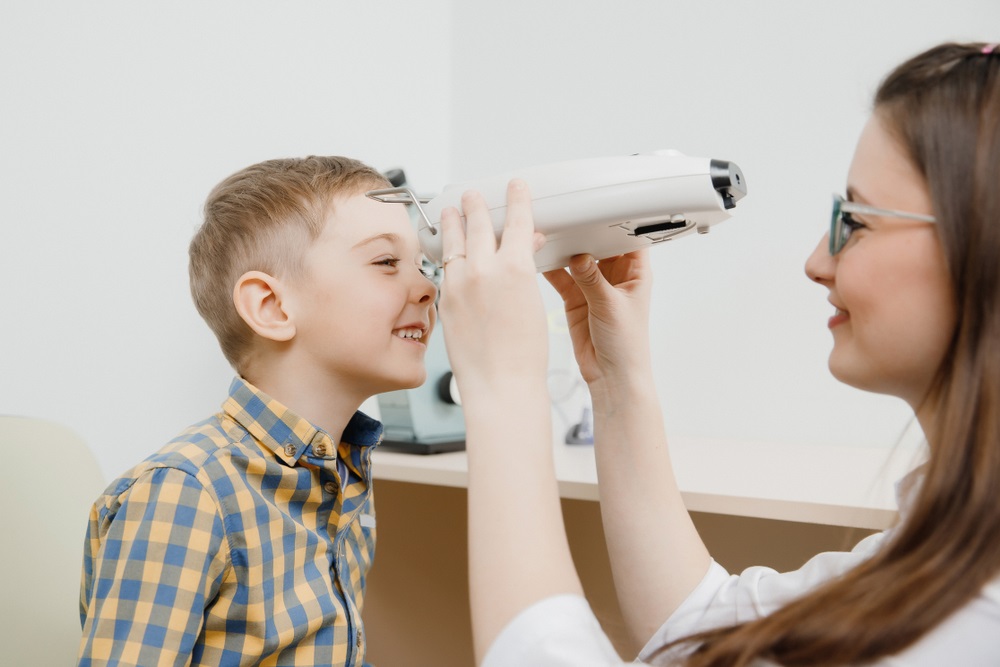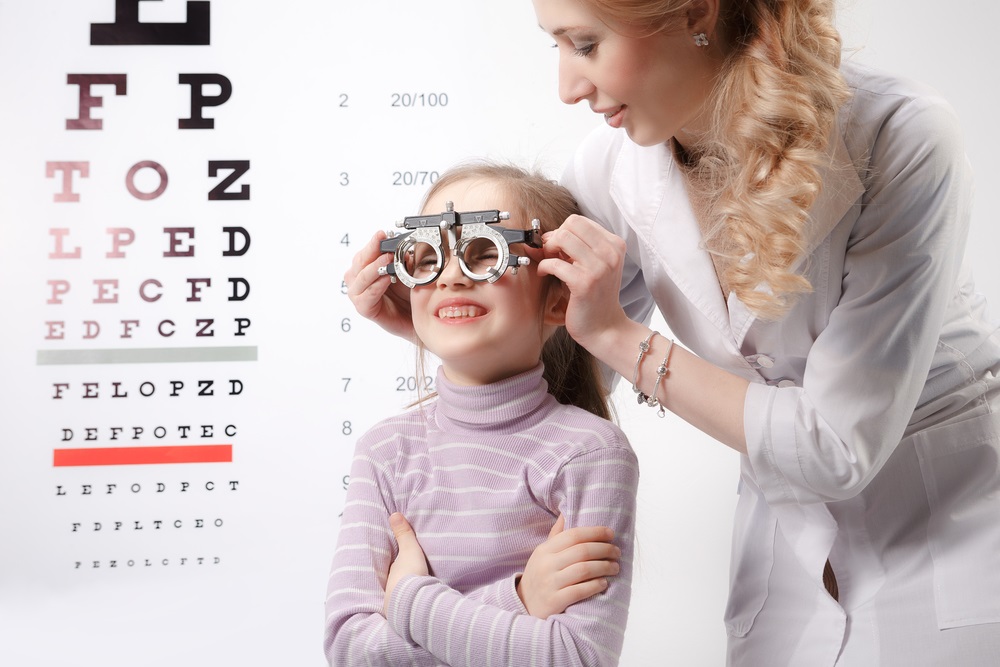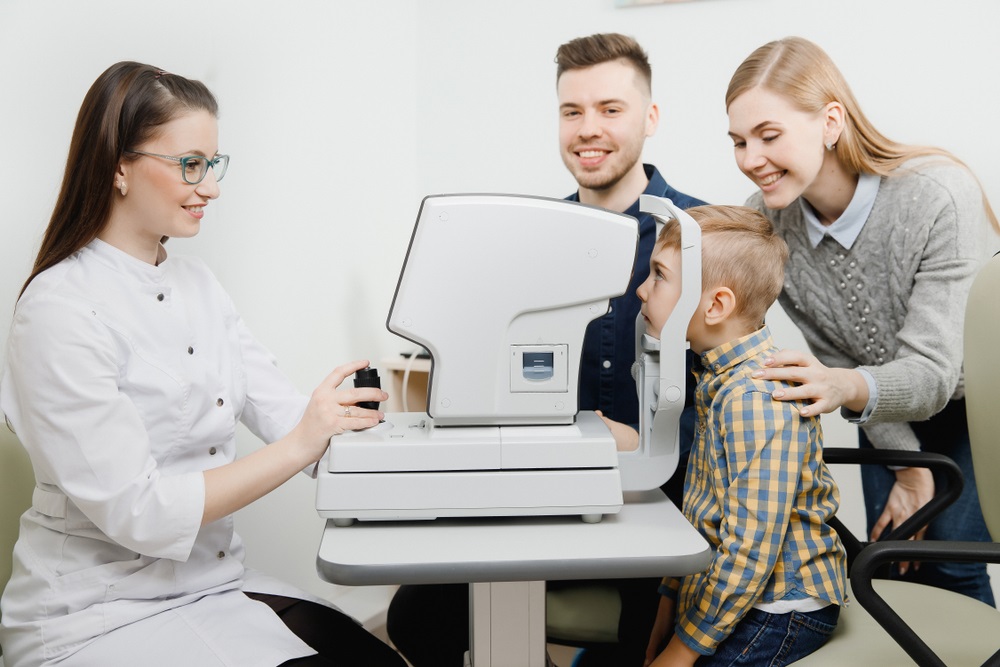Regular pediatric eye exam is crucial for kids’ vision health. In today’s fast-paced digital age, it’s easy to overlook the importance of eye health, especially for children. As parents, guardians, and educators, we often focus on ensuring our kids are well-fed, educated, and safe. However, we sometimes neglect a crucial aspect of their well-being: their eyesight. In this article, we’ll delve into the significance of regular eye exams for children, why they’re necessary, and how they can contribute to your child’s overall development and quality of life.
Contents
Understanding the Importance of Early Detection
Many children’s vision problems go unnoticed because they might not even realize they have an issue. They often adapt to poor vision, assuming everyone sees the world as they do. This is where regular and comprehensive eye exams come into play. Early detection of vision problems is crucial to address and correct them effectively.
Identifying Common Vision Issues
Eye disease treatment is a must for children. Children can experience a variety of eye issues, including:
Myopia (Nearsightedness): Kids with myopia struggle to see distant objects. This can affect their academic performance and overall quality of life.
Hyperopia (Farsightedness): Hyperopia can lead to difficulty reading and focusing on close-up tasks.
Amblyopia (Lazy Eye): Amblyopia can result from untreated vision problems and may lead to irreversible vision loss if not addressed early.
Astigmatism: Astigmatism can cause blurry vision and eye discomfort, impacting a child’s ability to learn and play.
The Impact on Learning and Development
Undiagnosed vision problems can hinder a child’s learning experience. They might struggle with reading, writing, and paying attention in class. This can affect their self-esteem and confidence, creating a ripple effect on their academic journey.
The Benefits of Regular Pediatric Eye Exams
Regular and pediatric eye exams offer numerous advantages:
Early Intervention: Detecting and addressing vision issues early can prevent long-term consequences and enhance a child’s quality of life.
Academic Success: Improved vision can lead to better performance in school, boosting a child’s confidence and enthusiasm for learning.
Preventing Amblyopia: Regular eye exams can catch amblyopia before it becomes irreversible, ensuring your child’s vision remains unimpaired.
Overall Well-Being: Clear vision contributes to a child’s overall health and well-being, allowing them to enjoy recreational activities to the fullest.
Parental Peace of Mind: Knowing your child’s eyes are healthy can provide peace of mind and a brighter future.
What to Expect During a Pediatric Eye Exam
Pediatric eye exams differ from those of adults. They are designed to be child-friendly and engaging, ensuring kids feel comfortable throughout the process. These exams typically include:
Vision Assessment
An eye doctor will check your child’s visual acuity to determine if they have vision problems, such as myopia, hyperopia, or astigmatism.
Eye Health Examination
The eye doctor will inspect the health of your child’s eyes, looking for issues like conjunctivitis, allergies, or blocked tear ducts.
Visual Alignment Test
To identify issues like strabismus (crossed eyes), the doctor will assess how well your child’s eyes work together.
Refraction Test
This test helps determine the prescription for glasses, if necessary.
The Importance of Regular Eye Exams at Every Age
Regular eye exams are essential for kids of all ages, from infants to teenagers. Each stage of development presents its unique eye health considerations.
Infants and Toddlers
Eye exams can begin as early as six months of age to detect issues like congenital eye problems.
School-Aged Children
Annual exams can ensure that vision problems don’t interfere with learning and social development.
Teenagers
As your child grows, their eyes may change, requiring regular assessments to accommodate their visual needs.
FAQs
When should I schedule my child's first eye exam?
You can schedule your child’s first eye exam as early as six months. Early detection is key to addressing potential vision issues.
How often should my child have an eye exam?
School-aged children should have annual eye exams. Teenagers may need more frequent exams as their eyes continue to develop.
What if my child is resistant to having an eye exam?
Engage your child by explaining the importance of a clear vision for their learning and enjoyment of activities. Choose an eye doctor with a kid-friendly approach.
Can undiagnosed vision issues affect my child's self-esteem?
Undiagnosed vision problems can impact a child’s confidence and self-esteem, especially in school or social settings.
What are some signs that my child might have a vision problem?
Look out for signs like squinting, headaches, poor performance in school, or complaints of blurry vision. These can indicate a potential vision issue.
Conclusion
In conclusion, ensuring your child’s eye health is as vital as any other aspect of their well-being. Regular eye exams can detect and correct vision problems, leading them to academic success and overall well-being. As a parent or guardian, you must prioritize your child’s vision. Don’t wait until they struggle in school or show signs of discomfort. Schedule their next eye exam today and give them the gift of clear vision and a bright future.
You can use our pediatric eye exam for your beloved children. You can also contact us in case you have any questions.



